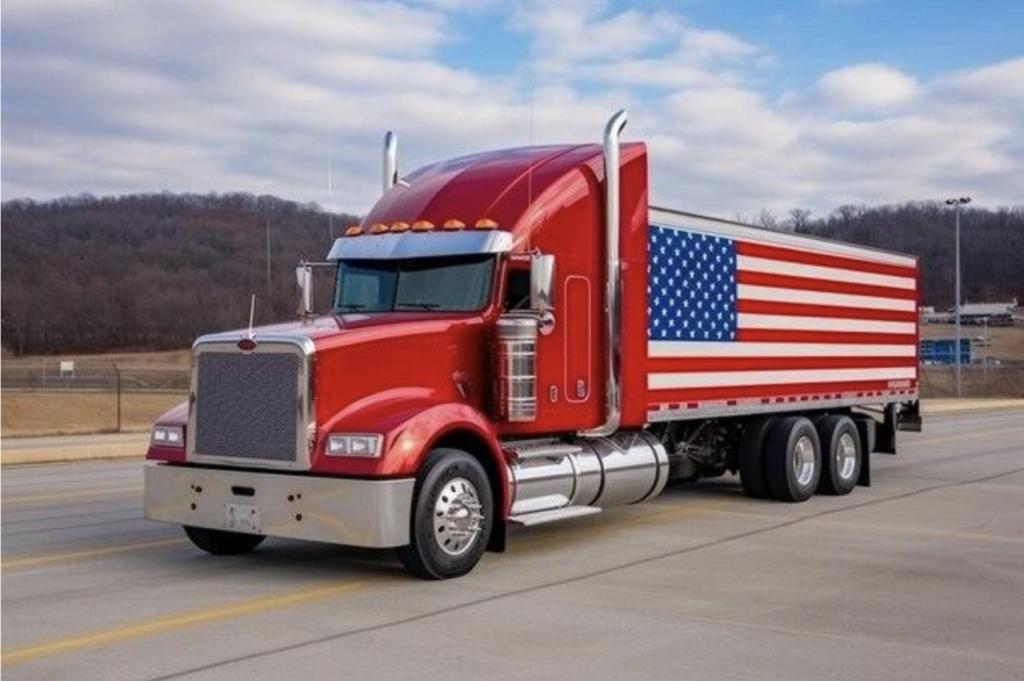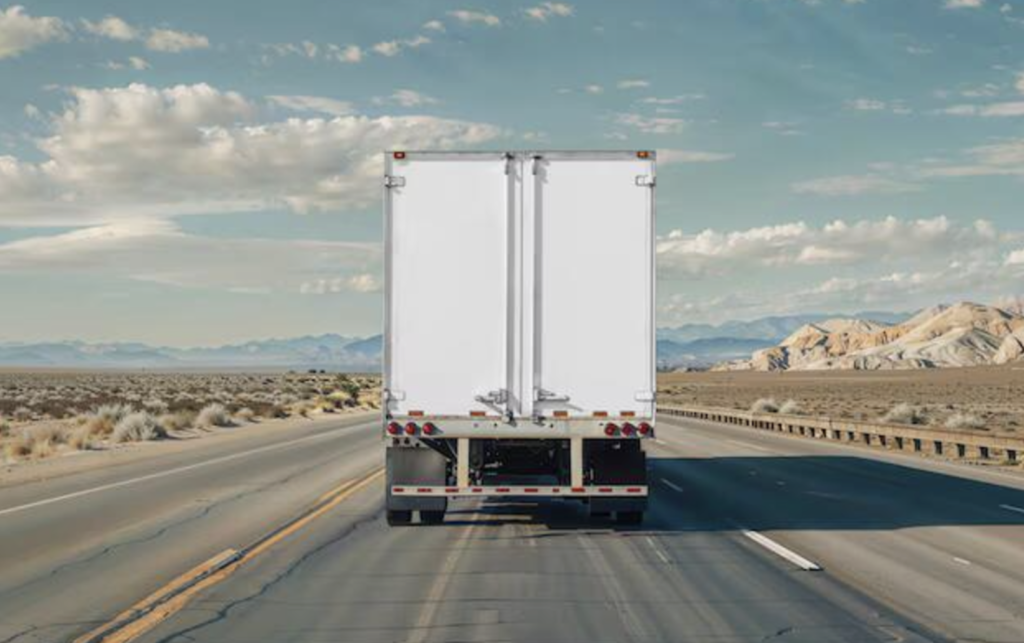Understanding the Impact of Comprehensive Freight Solutions on Business Growth
- Scalability: Freight solutions offer flexible services that can grow with your business. This means increased shipping volumes due to business growth are managed appropriately with no decrease in the quality or speed of service. For instance, businesses that see a 15 percent annual increase in shipping volumes can scale up without facing further logistical setbacks.
- Advanced Technology Integration: Utilizing state-of-the-art tracking systems, companies like HMD Trucking offer real-time shipment tracking, minimizing delays and enhancing inventory management. Their freight transportation services are further bolstered by these innovations, ensuring reliability and efficiency. A 2022 Gartner survey showed that 75% of logistics leaders improved delivery prediction accuracy through advanced tracking technologies, boosting overall supply chain transparency.
- Customized Solutions: Shipping plans tailored to the needs of a specific industry ensure that items of value or of a fragile nature arrive safely and on time. Take, for instance, the pharmaceutical industry, which requires temperature-controlled logistics. These are customized solutions designed to keep the products intact and may reduce the rate of spoilage by up to 30 percent.
- Risk Mitigation: All-in-one freight services reduce the risks of supply chain disruption by using different shipment methods and routes, thereby safeguarding revenue. According to the Business Continuity Institute, companies with great freight strategies showed a 40% lesser effect of global supply chain disruption in the year 2022 compared to those with poor strategies.

Tailored Transportation Strategies to Meet Unique Business Needs
Every logistics issue affects each business in its own way. That is why customized transportation solutions play a core role in the realization of certain operational goals. In this respect, tailor-made plans depend on specific industry needs, regional influences, and seasonal changes. As an example, the freight schedule should correspond with a busy selling season for fashion retailers so that the products may hit the shelves just in time for the lucrative holiday sales that can account for up to 30% of a retailer’s annual revenue. Research by Transport Intelligence reveals that customized logistics can lead to a 28% increase in the efficiency of delivery, thus reducing costs and increasing customer satisfaction, significantly affecting the bottom line.
Companies such as HMD Trucking have been able to take the lead by offering specialized services, including expedited shipping for time-sensitive deliveries, which is a key factor in health and technology sectors where delays translate into colossal losses. This strategy allows companies to remain competitive and adapt quickly and smoothly to changes in the market for continued growth. Other studies reveal that customized logistic solutions result in a 15% enhancement of responsiveness to the market regarding companies.
Key Benefits of Integrated Logistics Services for Companies
- Cost Efficiency: Accumulated shipments and routing for delivery allow companies to save up to 15% on transportation costs, as apparently evidenced by research from the Institute of Supply Chain Management. Cost-effectiveness thus provides room for companies to charge competitively. A study in 2022 showed business outlets that used integrated logistics saved about $1.2 m on average annually in transportation costs.
- Better Collaboration: An integrated logistics network improves relationships with both suppliers and distributors. In a study conducted by Deloitte in 2023, firms using integrated logistics showed a 20% increase in the rating of supplier relationships. This goes a long way in improving supply chain dependability, often by 10% through reduction in lead times and by 15% through improved order accuracy.
- Centralized Data Management: One source for the logistics information reduces management’s administrative workload and allows them to make more effective decisions. Companies such as HMD Trucking adopted this approach and showed improved control over the operation and also a 12% boost in productivity. Moreover, the centralized data management has the capacity to reduce errors in data entry by 30%, hence smoothing operations and increasing productivity at large.
- Sustainability: Efficient logistics operations will reduce carbon emissions, which supports international goals for sustainability. Integrated strategies can lower emissions by 8%, aiding green business initiatives. This reduction aligns with the Paris Agreement’s goals and is required for the global effort at keeping temperature rise to 1.5°C above pre-industrial levels.

Exploring Innovative Technologies in Freight Transportation
Within the rapid space of freight transport, advanced technologies leave their marks on logistics management for better efficiency and growth. The latest autonomous vehicles and drones for last-mile delivery are a tactic foreseen to cut delivery times by 40% and ultimately drop labor costs significantly, according to the International Transport Forum in 2023. These technologies speed up deliveries while making the process safer due to their precise navigation systems, reportedly decreasing accidents by up to 30%.
AI-driven predictive analytics is also one huge leap forward. The system allows companies to predict a potential disruption in the supply chain by analyzing massive volumes of data, at a rate of over 1 million data points per second, which reduces overall downtime up to 25%, according to the Global Supply Chain Institute. Blockchain technology even enhances freight management with tamper-proof shipment history records for increased transparency and trust among all parties. More than 80% of organizations using blockchain have reported an enhancement in traceability and a 50% fraud reduction.
IoT-enabled sensors from HMD Trucking present an example of how innovation works to monitor cargo conditions in real time, thereby enabling the correct preservation of sensitive items like pharmaceuticals. Their sensors can closely monitor temperature fluctuations at an amazing 0.5-degree Celsius change and are very important for maintaining the efficiency of temperature-sensitive commodities. Companies that use these new tools create greater efficiency, lower costs by up to 20%, and give better service to their customers.

Case Studies: Businesses Achieving Success through Customized Freight Services
- Fashion Retail Success: The largest fashion retailer in the U.S., challenged by fluctuating seasonal demand, partnered with a freight provider to tailor a flexible logistics plan for peak seasons. The collaboration yielded a stock shortage reduction of 40% during the holiday season, culminating in a 25% increase in sales. The client improved delivery times by 15%, greatly increasing customer satisfaction.
- Breaking into Pharmaceuticals: A pharmaceutical company couldn’t guarantee the quality of their temperature-sensitive drugs when it came to transportation. Specialized refrigerated freight methods became adopted, reducing spoilage by 35% and ensuring the integrity and profitability of the product. This move also managed to slice costs related to transportation by 20% and raised distribution efficiency by 10%.
- Tech Industry Resilience: An electronics manufacturer adopted just-in-time delivery and predictive analytics to handle supply chain variability more effectively. The initiative led to a reduction in inventory carrying costs by 18%, while improving product launch schedules, thus making the company competitive in a rapidly moving environment. Furthermore, there was a gain of 12% in overall supply chain efficiency, enabling response times in the market to be faster.
- Agriculture Sector Improvement: This was further supported by an agricultural supplier when it reorganized its logistics to include flexible multi-modal transportation that would ensure that the shipments would be on time despite unpredictable weather. As a result, customer satisfaction increased by 30 percent and repeat orders by 20 percent. The agricultural supplier also noticed a 25 percent decrease in transportation delays, thus increasing supply chain resilience.
Also Read:
- Commercial Truck Rental vs Leasing: Understanding the Difference
- How Much Do Truck Drivers Make?
- 5 Exciting Features of Chevy’s New Electric Truck
Choosing the Right Freight Partner: Factors to Consider
In order to identify the perfect freight partner, there are several key factors to consider that match your needs and are in accordance with long-term goals. First, check the industry expertise of the partner: Does the partner have satisfactory experience in the freight management area in your sector? Technology companies use partners with experience in the safe, undamaged transportation of precious items since even 99.5% damage-free delivery is considered excellent. Also, consider their reach in regards to network and growth support.
A good partner, for instance, HMD Trucking, should be able to provide solutions that are comprehensive at different locations, thus making your scaling seamless as your company continues to grow. This includes having a presence in key logistical hubs and the capacity to handle a 20% increase in shipment volume without sacrificing service quality. Also, evaluate their technological prowess-partners using AI and IoT for real-time tracking infuse transparency and prevent delays. According to a survey by KPMG in 2023, 82% of leading logistics companies favor this method, which resulted in a 15% reduction in average delivery time. Finally, consider their commitment to sustainability: eco-friendly freight options can reduce carbon dioxide emissions by up to 10%, helping your brand look good and remain in compliance with environmental regulations.
According to the EPA, going green in logistics also helps reduce costs in operations by some 5%, thus being a very financially plausible choice at the same time as an ethical one.
Conclusion: Maximizing Business Potential with Comprehensive Freight Services

Integrate a holistic freight service approach in business to reinforce efficiency and growth. Their flexibility solutions will, therefore, enable companies to handle increased shipping volumes—projected to reach 92.1 billion tons globally by the year 2024—without giving way to speed and quality. Advanced technologies, such as IoT devices and blockchain, further enhance this with real-time tracking and complete transparency-a global IoT in logistics market that is estimated to grow at a compound annual growth rate of 13.2% from 2021 to 2026.
Custom shipping options address industry-specific demands and minimize risks while protecting revenue from unexpected disruption-costing businesses around $2 billion annually. Moreover, a full-service logistics approach will not only save money for your company, potentially shaving off up to 15% of the costs, and will be more “green” with lower carbon emissions; it can also reinforce partnerships and make customers more loyal, with repeat business 2.6 times more likely from satisfied customers. Companies like HMD Trucking are an example of how this can transform your services and ultimately set your business up for success and agility in an ever-changing market. Apply these techniques to unleash incredible business potential.








